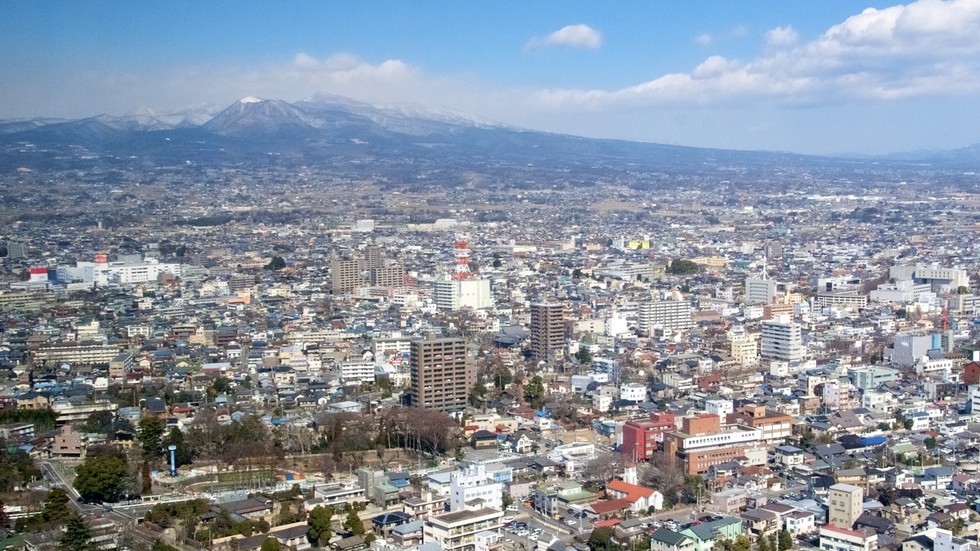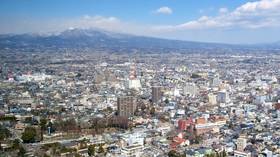
The Japanese headmaster reportedly refused to apologize for his remarks

FILE PHOTO: A view of Maebashi with Mt. Akagi, from the top of the Prefectural Government building. © Wikipedia
The president of a Japanese language school has reportedly resigned after calling Ukrainian students “elite refugees” who get more than they deserve from the government.
The Nippon Academy in Maebashi, Japan, announced on Monday that Masumi Shimizu would step down from his position, local newspaper Asahi Shimbun reported on Thursday.
Shimizu’s school has accepted 38 Ukrainian students, who objected when management asked them to start paying for tuition after receiving several months for free. Speaking at a press conference last month, Shimizu referred to the students as “robbers” and “elite refugees,” who enjoy free rent and tax exemptions while Asian students struggle to make ends meet.
Shimizu’s comments went public, and the school was reprimanded by prefectural authorities. These authorities then announced that Ukrainian students who wished to continue learning Japanese would receive payments to do so, while continuing to enjoy free housing and assistance with living expenses, the Mainichi newspaper reported.

Read more
The former school director refused to apologize as he stepped down, insisting that the “prefectural government is doing far more than it should” for the Ukrainians. Shimizu added that the refugees – some of whom told the Mainichi that his remarks caused them emotional damage – are acting like a “privileged class.”
Shimizu said that he was urged to resign by the school’s board of management.
The Asahi Shimbun reported a similar incident last year in which an Afghan asylum seeker in Japan condemned the government’s apparent double standards in relation to Ukrainian refugees. He claimed that Tokyo was giving Ukrainians preferential treatment in an “extremely political move.”
Japan has taken in around 2,300 Ukrainian refugees since last February, the majority of whom speak little to no Japanese. An ethnically and linguistically homogeneous society, Japan has traditionally kept its doors closed to refugees and immigrants, and accepted a record 74 asylum applications in 2021, up from 27 the year before.
Ukrainians in Japan are not technically recognized as “refugees,” a designation that would grant them five-year visas. Instead they are given one-year work permits with the possibility of extension.




